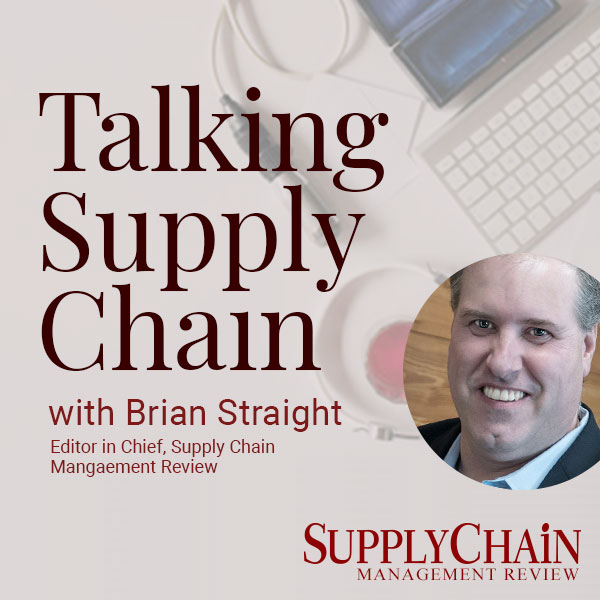NextGen supply chain technologies can be deceiving. Not in the sense that they don't deliver as advertised. But in the sense that they are already at work and you may not realize it. In fact, artificial intelligence is already being embedded with processes and equipment across the global supply chain.
The sweet spot for AI is intelligent automation (both software and hardware). In fact, 40% of retail and consumer products suppliers “say their organizations are already engaged in some form of intelligent automation.” And more than 80% of those respondents expect to be using intelligent automation by 2021. That's according to a survey released last month by NRF (National Retail Federation) and the IBM Institute for Business Value. They surveyed 1.900 retail and consumer product leaders across 23 countries.
Clearly, AI is already here. And the expectations are high. They expect intelligent automation to “help increase annual revenue growth by up to 10%.” In fact, half of all respondents expect intelligent automation to increase revenue. That will come, in part, from increased operational efficiency (64% of respondents), improved quality and speed of decisions (54%), increased operational agility (48%) and reduced costs (47%). They cited several other advantages, but you get the drift.
While those are future expectations, AI is already delivering (maybe more than advertised). Companies with intelligent automation report improved quality and speed of decisions (83% of respondents), increased operational agility (81%), increased operational efficiency (79%), extended and expanded capabilities (71%) and increased revenue growth (70%).
Not half bad for today's current class of early adopters. And there are many of them beyond the retail and consumer products suppliers surveyed by NRF and IBM.
So where exactly is all the action making such gains possible?
Supply and demand planning is a big one. Consider what Rich Sherman of Tata Consultancy Services had to say on this last month.
“In a digital supply chain, digital demand management using predictive analytics (including AI) is the path to tying the silos (of the supply chain) together. It facilitates sharing data across silos so variances that started in one but affect another can be communicated in a timely fashion.” Sherman went on to explain that the outcome is eliminating the time delay in communicating variability across the supply chain, giving people more time to respond to change.
That said, it becomes clear why increased revenue growth is possible with intelligent automation.
Merck is already on the case. Last year, it adopted digital demand planning using AI in a pilot for 100 products. By the end of this year, that pilot is expected to expand to all of the company's 5,000 products. The idea is to give its planners the tools to better position inventory to fill customer demand.
Steve Banker of ARC Advisory Group sees machine learning based demand planning as a form of continuous improvement. The more data AI has to look at, the better it can recognize patterns and shifts in patterns.
Similarly, AI is finding its way into warehouse management software. In this month's NextGen Supply Chain Interview, Evan Garber of EVS talks about how his company is now collecting data for AI to crunch so its warehouse management system (WMS) improves the operation of a distribution center. “AI analyzes all of it (data) and directs operations on the fly rather than to preset routines. It is constantly evolving and highly dynamic,” unlike traditional WMS.
JDA is another company in the hunt here. Earlier this month, JDA introduced its AI-powered supply chain management platform. It is said to “unite planning, execution and delivery capabilities from end-to-end.” A statement like that makes it clear that expectations of increased revenue growth from AI are grounded in strong operational efficiencies not previously possible.
AI is also running around many a DC and manufacturing floor on computer-directed bots. They use LIDAR (light detection and ranging) surveying technology and cameras to collect data about a bot's surroundings. AI crunches that data and turns it into directions for the bot to follow, avoiding obstacles and people. AI is what makes the bot autonomous because it crunches data in real time. And AI is used by companies as diverse as XPO Logistics and Gap Inc.
Then there's the matter of predictive maintenance. Preventive maintenance is scheduled based. Predictive maintenance is needs base. In other words, it initiates a specific maintenance request based on real-time data that has been analyzed by AI to determine a specific need.
Budweiser, for instance, uses sensors to collect data about the ultrasonic sound of motors on packaging lines. AI analyzes those sounds and initiates maintenance before the equipment breaks down. The Wall Street Journal reported that a $20,000 investment saved $200,000 in product loss at Budweiser's Fort Collins brewery.
Clearly, AI is infiltrating the supply chain with very positive results at a number of early adopters. Better yet, this is one of those stories that the best is yet to come.
Gary Forger is special projects editor for Supply Chain Management Review. He can be reached at [email protected].
SC
MR


More Events
- Next-Gen SupplyChains: Underpinning your ability to manage complexity and drive innovation
- The Future of Supply Chains: Next-Generation Technology and Beyond
- Thanks to all who made NextGen a success
- Medline Executives’ Keynote to Kick Off NextGen Supply Chain Conference
- NextGen Supply Chain Conference 2022: About our event
- Industry Innovators Take Home 2022 NextGen Supply Chain Awards
- More Events
Latest Podcast

 Explore
Explore
Topics
Software & Technology News
- Technology’s role in mending supply chain fragility after recent disruptions
- Tech investments bring revenue increases, survey finds
- Survey reveals strategies for addressing supply chain, logistics labor shortages
- AI, virtual reality is bringing experiential learning into the modern age
- Humanoid robots’ place in an intralogistics smart robot strategy
- Tips for CIOs to overcome technology talent acquisition troubles
- More Software & Technology
Latest Software & Technology Resources

Subscribe

Supply Chain Management Review delivers the best industry content.

Editors’ Picks





